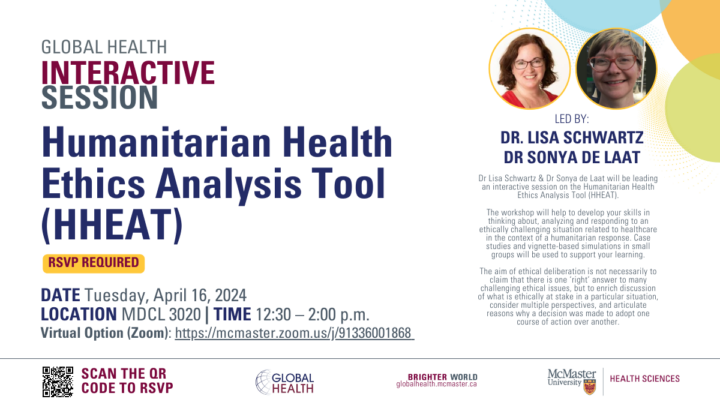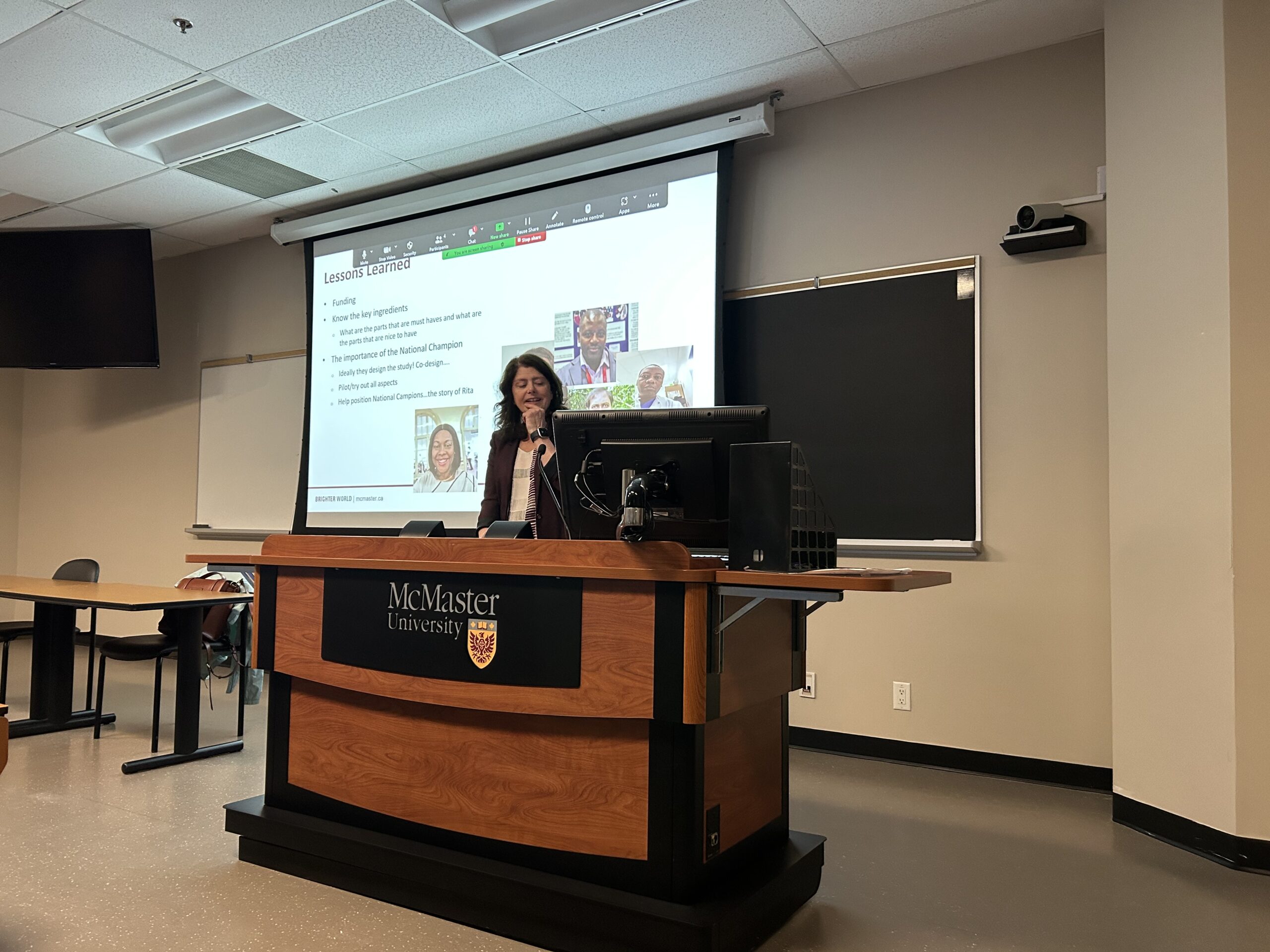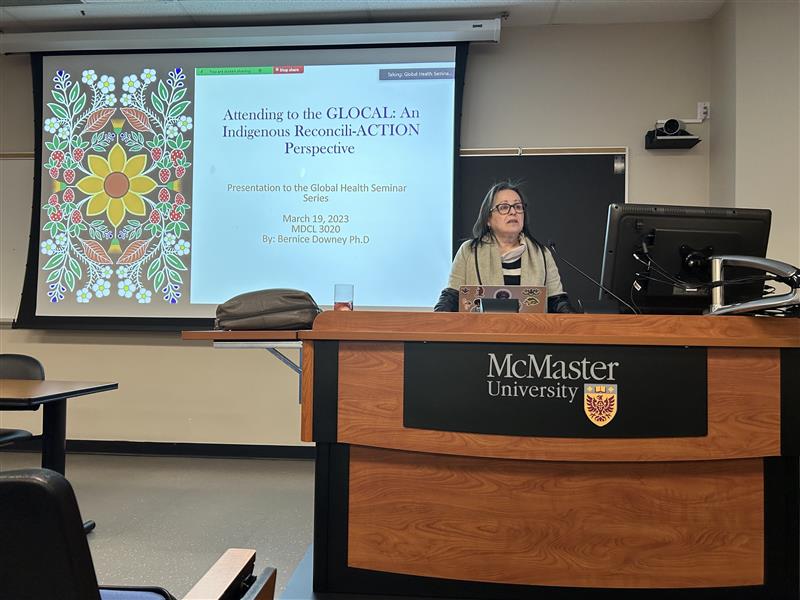Navigating the Moral Maze: Unlocking the Global Health Ethical Enigma with the Humanitarian Health Ethics Analysis Tool (HHEAT)

Blog Post below written by Global Health PhD student Naharin Sultana Anni.
In the vast expanse of global health, navigating ethical dilemmas is akin to traversing uncharted territories. Lisa Schwartz, Arnold L. Johnson Chair in Health Care Ethics and Professor in the Department of Health Research Methods, Evidence & Impact, McMaster University, alongside Sonya de Laat, Research Associate in the same department and former Postdoctoral Fellow in Humanitarian Health Ethics, illuminated this notion during the recent Global Health Seminar. They embarked on a journey to explore the depths of ethical decision-making in healthcare through the lens of the Humanitarian Health Ethics Analysis Tool (HHEAT).
Schwartz delved into the seminar with a profound exploration of research ethics, elucidating its essence with a quote that resonated deeply: “Ethics is a framework for understanding acting towards the good life, a guidance on deciding between right and wrong.” She presented the ethical implications of non-governmental organizations’ (NGO) practices, particularly regarding the use of photographs on websites, specifically in African contexts. Schwartz urged attendees to consider the ethical ramifications of these images, raising thought-provoking questions about consent, representation, and the potential perpetuation of stereotypes. Another compelling scenario brought to light by Schwartz revolved around the unequal distribution of research data and results in low- and middle-income countries (LMICs).
In the realm of humanitarian healthcare funding, a pivotal ethical quandary emerges when determining who should be prioritized, when, by how much, and who should be the decision maker for the allocation of resources. Schwartz shed light on this dilemma, using the Rohingya refugee camp in Bangladesh as a poignant example. With stark clarity, she revealed the complexities of prioritization, where the influx of aid initially benefited refugees disproportionately over locals. This scenario prompted a profound reflection on the role of governance versus NGO intervention in decision-making processes. She emphasized the urgent need for transparent and inclusive mechanisms that navigate the delicate balance between addressing immediate needs and fostering long-term sustainability in humanitarian health research.
Sonya de Laat elaborated on the HHEAT, explaining that it was designed to aid healthcare workers facing ethically challenging situations in humanitarian contexts. The tool offers structured guidance, drawing from diverse sources including local norms, laws, and professional ethics. It comprises a quick reference card, handbook, and worksheet, fostering comprehensive ethical analysis. Tailored for field workers, policymakers, and organizational leaders, the HHEAT facilitates group decision-making and debriefing sessions, promoting accountability and moral responsibility. This tool includes six important steps such as identifying the issue, gathering information, exploring resources, evaluating options, and reflecting on the decision-making process for ethical practice. Flexible in application, it adapts to evolving situations while encouraging documentation of decisions and rationales. The HHEAT serves as a vital resource, navigating the complex terrain of humanitarian ethics with clarity and adaptability. The opportunities and challenges of using the HHEAT were further demonstrated as de Laat and Schwartz guided attendees through a series of cases illustrating diverse ethical issues.
Thorough research before starting the project, curiosity, and visionary thinking, as underscored by Schwartz, are integral aspects of ethical deliberation and contribute significantly to shaping global health outcomes. As the ethical frontiers of healthcare are navigated, it becomes evident that there is seldom a singular “right” answer, but rather a nuanced understanding of various perspectives. Ethical decision-making transcends mere adherence to guidelines; it embodies a deeper sense of humanity and compassion. The call to action resonates profoundly, urging robust research, collaborative partnerships, and ethical integrity in all endeavors. With the HHEAT guiding the path, a departure is made with renewed fervor to confront ethical challenges head-on, working towards a brighter future for global healthcare founded on equity, transparency, and justice.
Student Blog


